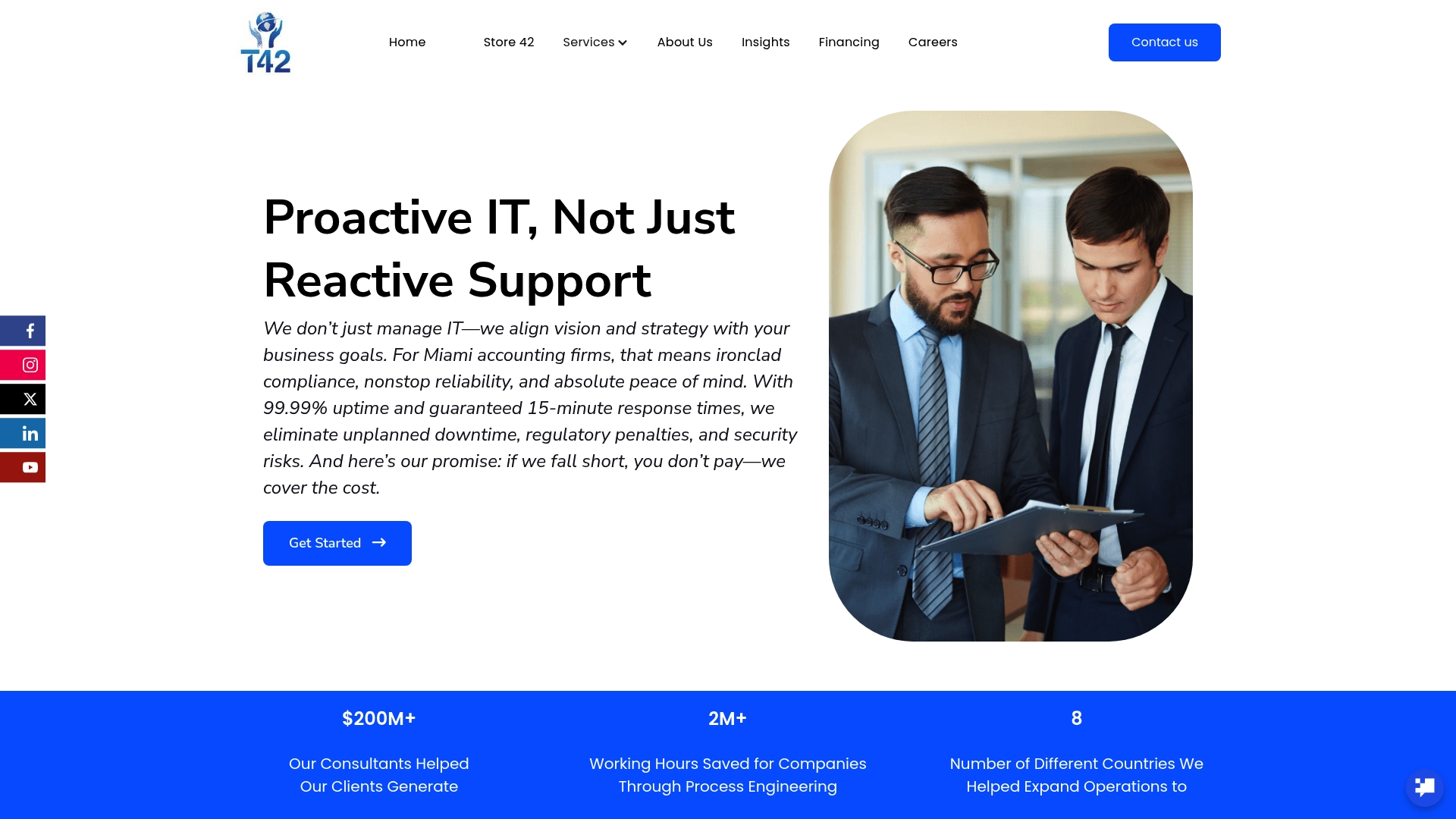
Accounting firms everywhere are investing in new technologies and trying to keep up with constant digital changes. Digitally transformed organizations are 23 percent more profitable than those stuck in old routines. That sounds like a solid reason to upgrade your software right now. But the real difference is not about the shiny new tools or bigger servers. The biggest wins come from how smoothly teams navigate the change, not just what they install.
| Takeaway | Explanation |
|---|---|
| Clear communication is essential | Transparent discussions about changes foster acceptance and understanding among team members. |
| Comprehensive training is key | Robust training programs ensure your team can effectively use new technologies without feeling overwhelmed. |
| Gradual implementation reduces resistance | Rolling out new technologies in phases helps ease transitions and minimizes pushback from staff. |
| Continuous support is crucial | Ongoing technical support throughout transitions helps team members feel secure and competent. |
| Focus on people, not just tools | Successful digital change management considers human dynamics and readiness, ensuring teams adapt well to new technologies. |
Digital change management represents a strategic approach for accounting professionals to transform their practice’s technological infrastructure and operational processes. At its core, this methodology helps firms navigate technological transitions smoothly while minimizing disruption and maximizing team adoption.
In accounting, digital change management is about creating a structured pathway for implementing new technologies, software systems, and digital workflows. It goes beyond simply purchasing new tools - it focuses on helping your team understand, accept, and effectively utilize these technological upgrades. Think of it like teaching an experienced accountant to use cloud-based accounting software without making them feel overwhelmed or replaceable.
Successful digital change management in accounting relies on several critical principles:
Technology adoption isn’t just about tools - it’s about people. According to research from the National Institutes of Health, successful digital transformations prioritize human psychological readiness alongside technological capabilities. This means recognizing that every team member processes technological change differently.

If you want a deeper understanding of avoiding potential pitfalls, read our comprehensive guide on preventing digital transformation failures. Your accounting practice deserves a smooth, strategic technological evolution.
Accounting firms today operate in a rapidly evolving technological landscape where digital transformation isn’t just an option - it’s a survival strategy. Digital change management has become critical for maintaining competitive advantage, improving operational efficiency, and meeting increasingly sophisticated client expectations.
In the accounting world, embracing digital change isn’t merely about buying new software. It represents a strategic investment in your firm’s future. Firms that successfully implement digital change management can reduce operational costs, streamline complex workflows, and deliver more accurate financial insights faster than traditional practices. Research from McKinsey suggests that digitally transformed organizations are 23% more profitable compared to their less adaptive counterparts.
Modern clients expect real-time financial information, transparent reporting, and seamless digital interactions. Digital change management enables accounting firms to:
Younger accounting professionals want to work with firms that embrace technology. Digital change management signals to potential employees that your organization values innovation and professional growth. By creating a tech-forward environment, you become more attractive to top talent who want to work with cutting-edge tools and methodologies.
If you want a comprehensive understanding of digital strategy, check out our detailed guide on digital transformation. Your accounting firm’s future depends on how well you navigate technological change.
The following table compares how digital change management impacts key areas within accounting firms, summarizing how digital transformation delivers value for operations, clients, and talent.
| Area | Traditional Approach | With Digital Change Management |
|---|---|---|
| Operational Efficiency | Manual workflows, higher error rates | Automated processes, fewer errors |
| Client Experience | Paper-based, periodic communication | Real-time access, improved transparency |
| Service Delivery Speed | Slower turnaround, delayed insights | Faster reporting, instant updates |
| Talent Attraction & Retention | Limited appeal to tech-driven talent | Attractive modern, innovative environment |
| Data Security | Physical storage, higher risk | Enhanced digital security & compliance |
In the accounting profession, digital change management isn’t just about internal technological upgrades - it fundamentally transforms how firms interact with and serve their clients. By strategically implementing digital solutions, accounting practices can create more transparent, responsive, and personalized client experiences.
Digital change management enables accounting firms to provide unprecedented levels of client transparency. Modern clients want real-time access to their financial information, detailed reporting, and instant communication channels. Implementing secure client portals, automated reporting systems, and digital collaboration tools demonstrates your firm’s commitment to openness and technological sophistication.
Traditional accounting relationships were often characterized by periodic meetings and paper-based communications. Digital change management revolutionizes this dynamic by offering:
Advanced digital tools allow accounting firms to move beyond reactive service models. Research from Deloitte indicates that digitally transformed accounting practices can provide predictive financial analysis, helping clients make more informed strategic decisions. By leveraging data analytics and machine learning, firms can offer proactive insights that position them as strategic partners rather than mere number crunchers.

For a deeper understanding of how technology can transform your client relationships, explore our guide on digital transformation strategies. Your firm’s future depends on embracing these technological opportunities.
Navigating digital transformation requires more than technological investment - it demands a holistic approach that balances people, processes, and technology. Successful digital transitions in accounting firms demand strategic planning, cultural adaptation, and a clear understanding of both technical and human dynamics.
Before implementing any digital change, accounting firms must conduct comprehensive organizational assessments. This involves understanding current technological capabilities, identifying potential gaps, and developing a realistic roadmap for digital evolution. A thorough assessment helps firms avoid common pitfalls like implementing technologies that don’t align with their specific operational needs or team capabilities.
Technological transitions are fundamentally human experiences. Successful digital change management requires creating an organizational culture that embraces innovation and continuous learning. Firms need to:
Research from Gartner indicates that successful digital transitions prioritize scalable, integrated solutions over isolated technological investments. For accounting firms, this means selecting tools that:
If you want a deeper understanding of building a comprehensive digital strategy, explore our guide on digital strategy for businesses. Your firm’s technological future depends on strategic, thoughtful implementation.
This table outlines the core principles and strategies for a successful digital transition in accounting firms, clarifying their focus and practical application.
| Principle/Strategy | Focus | Example Application |
|---|---|---|
| Clear Communication | Keeping everyone informed | Regular team meetings, email updates |
| Comprehensive Training | Building digital literacy | Workshops, online learning modules |
| Gradual Implementation | Easing transitions | Phased rollout of new software |
| Continuous Support | Sustaining team confidence | Ongoing technical help, feedback channels |
| Cultural Readiness | Encouraging innovation and safety | Empowering change champions, open discussions |
| Strategic Assessment | Aligning tools with firm needs | Identifying gaps, creating a roadmap |
| Technology Selection | Ensuring integration & security | Choosing scalable, user-friendly systems |
Digital change management isn’t a theoretical concept - it’s a practical approach that accounting firms are implementing right now to transform their operations, improve client services, and stay competitive in an increasingly digital marketplace.
Consider a traditional three-person accounting practice in Miami that decided to embrace digital change management. By systematically introducing cloud-based accounting software, secure client portals, and automated workflow tools, they reduced manual data entry by 65% and increased client satisfaction scores. The key was not just purchasing technology, but carefully training staff, addressing their concerns, and creating a supportive learning environment.
Larger accounting firms are taking digital change management even further. Some strategies include:
Research from PwC reveals that firms successfully implementing digital change management see significant improvements in both operational efficiency and client relationships. By leveraging advanced analytics, artificial intelligence, and integrated platforms, accounting practices can provide more accurate, faster, and more personalized services.
To truly understand how digital transformation can revolutionize your practice, explore our insights on cultural business transformation. The future of accounting is digital, and the time to adapt is now.
Struggling to move beyond tech confusion and employee resistance while embracing digital change management for your accounting practice? You are not alone. The article emphasized how scattered technology adoption, unclear communication, and lack of support can stall progress and erode team morale. Without a well-orchestrated transition and reliable systems, your firm faces a higher risk of compliance issues, costly downtime, and frustrated clients.

You have read what makes digital transformation work—and what causes it to fail. Now give your Miami accounting firm unstoppable compliance and peace of mind. Secure 99.99 percent uptime, lightning-fast 15-minute response times, and proactive guidance you simply will not find anywhere else. Visit Transform42 to experience a different kind of IT relationship. If you are ready for hands-on support that aligns with your people, processes, and vision, connect here for a tailored consultation and discover the missing link that turns digital change into lasting success. Act now and protect your team and your reputation from unnecessary risks.
Digital change management in accounting is a structured approach to implementing new technologies and workflows. It focuses on ensuring that your team understands and effectively uses these upgrades rather than just adopting new tools.
To communicate digital changes effectively, focus on clear and transparent explanations about why the changes are important. Schedule regular meetings and utilize email updates to keep everyone informed and address any questions.
Implement comprehensive training programs that include hands-on workshops, online learning, and continuous skill development sessions. Aim to provide this training before new tools are fully rolled out to increase team confidence and reduce resistance.
Offer continuous technical assistance and create a channel for team members to seek help whenever needed. Establish a system where employees can provide feedback and suggestions on the new technologies to foster a supportive environment.
Start by assessing your current technological capabilities and identifying gaps, then develop a phased rollout plan for new software or systems. Aim to introduce one tool or process at a time, allowing a transition period of several weeks to ensure proper adaptation.
Digital change management enhances client relationships by providing more transparency, real-time access to financial data, and improved communication channels. Implement secure client portals and regular updates to help clients feel informed and engaged throughout the process.